WFP and EU team up to restore hope in the Gaza Strip
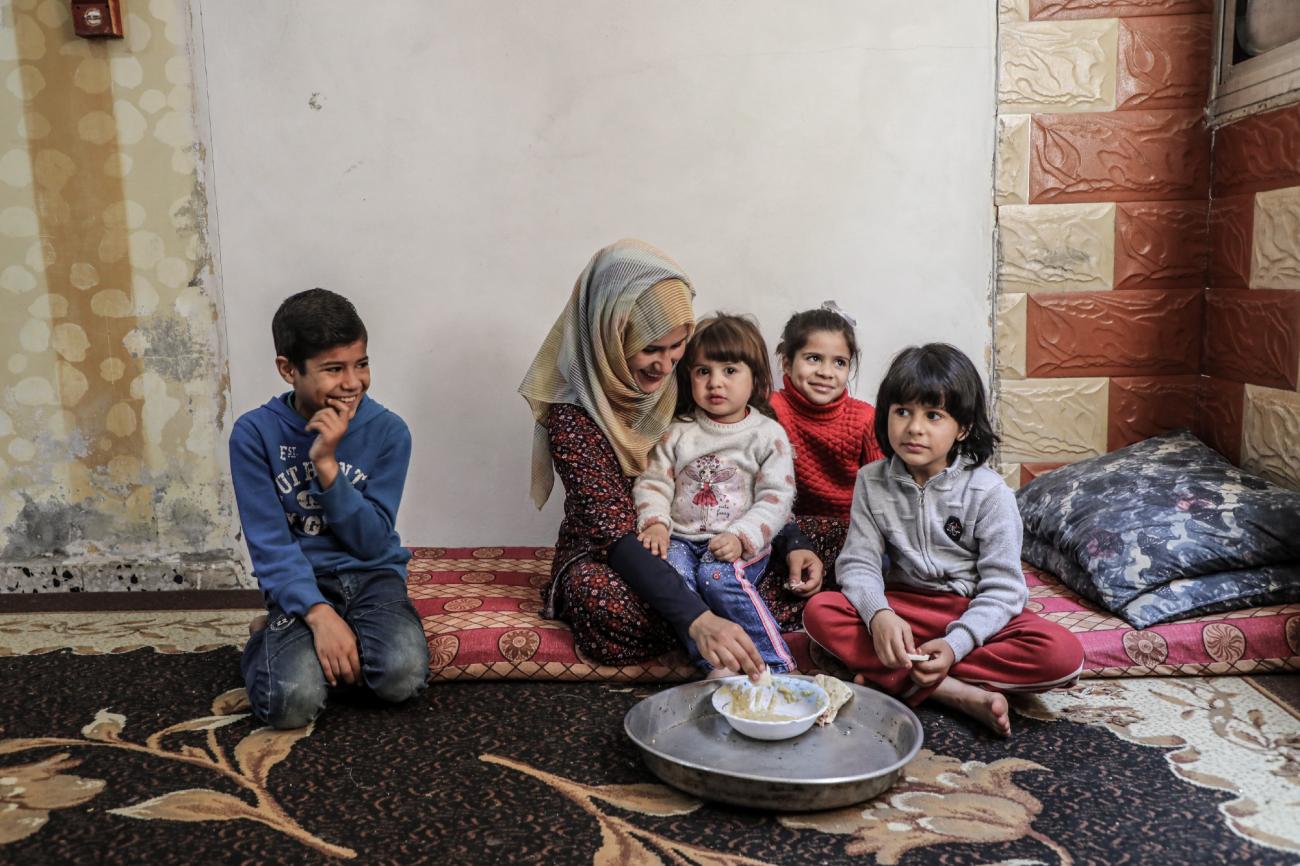
WFP delivers critical cash assistance to vulnerable families facing challenges posed by the longstanding conflict and the coronavirus pandemic.
The World Food Programme delivers critical cash assistance to vulnerable families facing challenges posed by the longstanding conflict and the coronavirus pandemic.
When Fatema became engaged to be married she hoped to build an ordinary family, with parents going out to work every day to create a future for their children. Sami, her husband-to-be, worked as a porter in a small glass factory in the Gaza Strip. He promised to provide her with a decent life and help her fulfil her dream of opening a beauty salon.
One year after they married, the factory shut down and Sami lost his job. Fatema’s dream of saving money to open a beauty salon had also vanished. Caught in a blockade entering into fifteenth year, Gazans are coping with a precarious economic crisis and lack of opportunities which have worsened because of COVID-19. This has pushed most of the population toward impoverishment amidst a perpetual conflict and the absence of prospects for peace and prosperity.
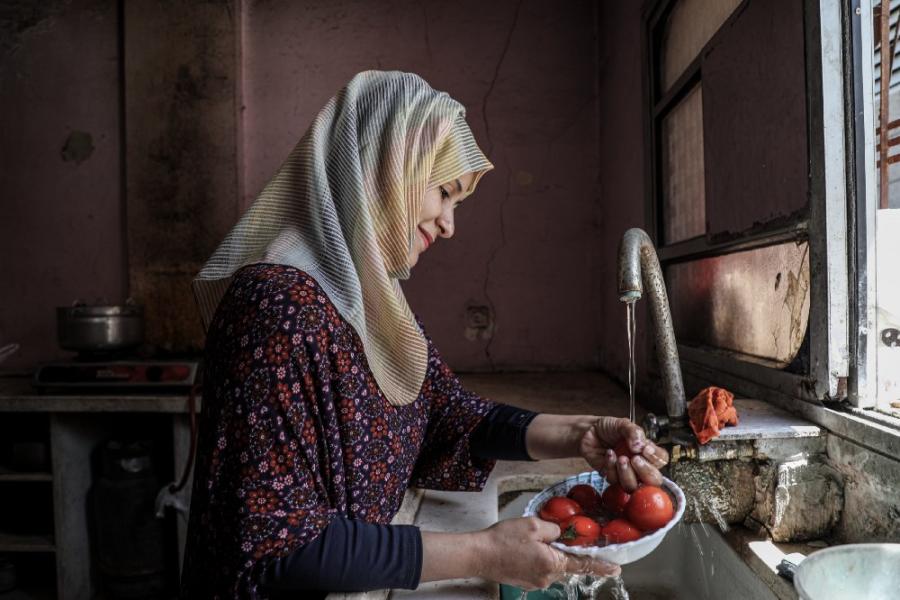
Fatema wound up taking care of her husband, their five children and her mother-in-law. “Our life is tough. We could not afford to provide our children with even basic food. Bread was sometimes the only thing to eat for our daily meal,” Fatema recalls with distress. “I waited for special holidays, like the month of Ramadan, to receive food and clothes through charity.”
The family’s small, modest house is located in a secluded area. The cracks in the ceiling and the walls have been a source of deep concern for Fatema, who recalls several incidents when her children were at risk of encountering reptiles and insects, and the few pieces of clothes they had were full of holes. “We did not have water. I had to wait for weekly water distributions from the municipality to get water to do laundry and wash dishes,” says Fatema. “I used to send my children to a remote well to fill glass bottles so that we had drinking water.”
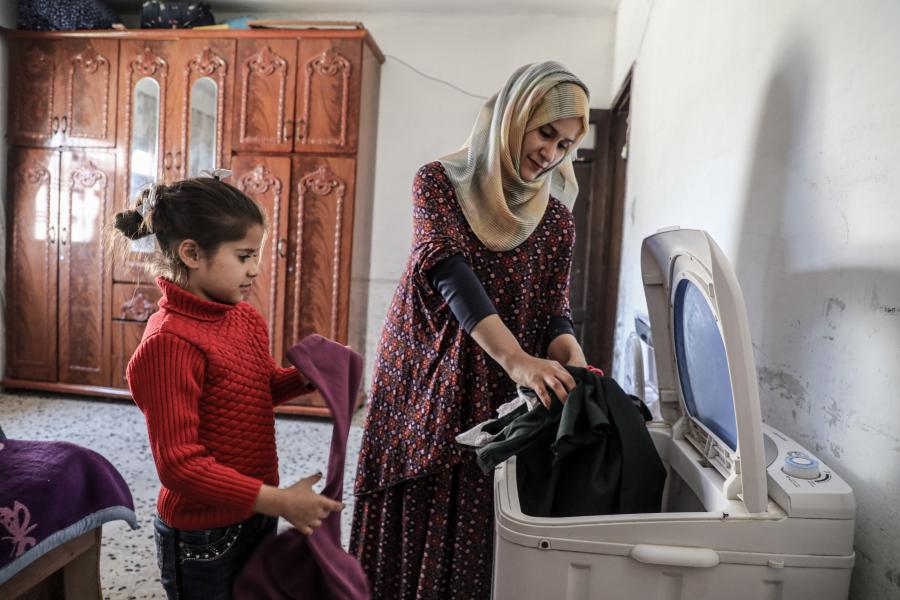
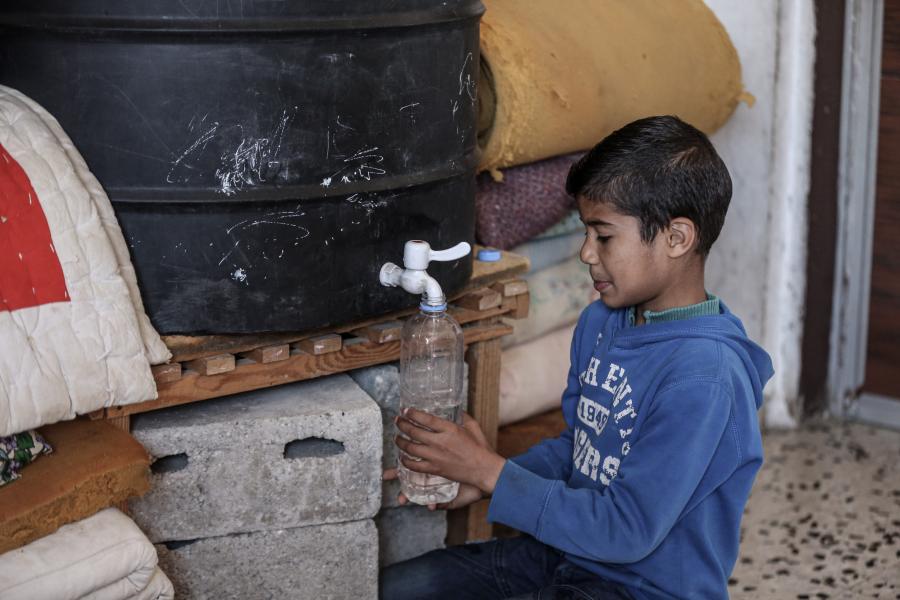
Cash assistance supports vulnerable families and local economies
With humanitarian funding from donors including the European Union (EU), the World Food Programme (WFP) launched its first multi-purpose cash assistance as a pilot project for 1,140 poor non-refugee families in the Gaza Strip.
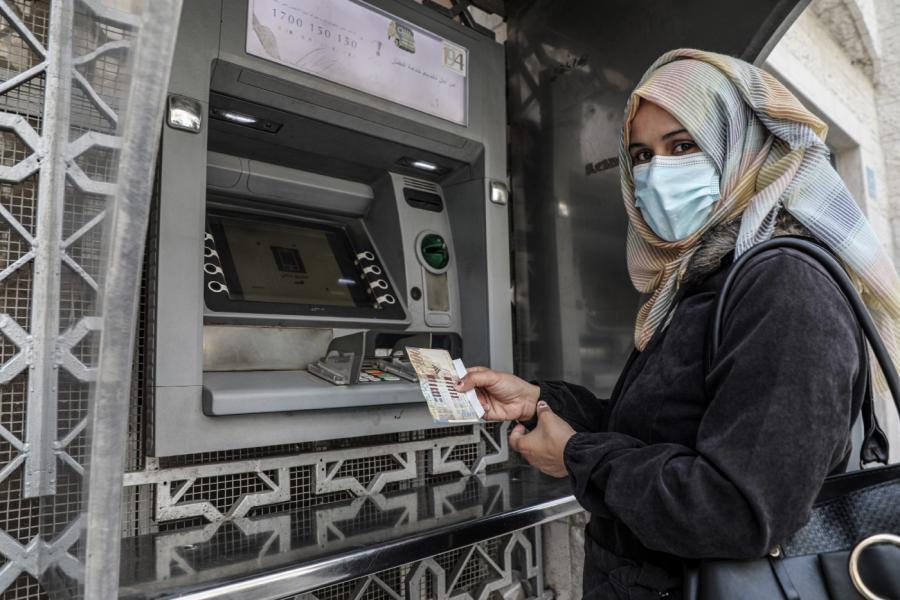
Cash assistance gives people with little to no income the opportunity to buy what they most need in local shops or markets. By giving enough cash for various essential needs, from food and water to education, shelter and healthcare, WFP helps families avoid having to limit their food intake because of other priorities. In the context of a multi-faceted humanitarian crisis like Gaza’s, where the COVID-19 pandemic has compounded the ongoing hostilities, blockade and political impasse, cash assistance is critical and gives the poorest families a means to improve their lives.
“My children can read.”
Fatema keeps score of the changes the family has experienced since they started receiving cash assistance. “We were able to pay back our debts,” she begins enthusiastically. “My children can eat good food just like normal people do. I give them pocket money and I bought them new clothes which I could not afford before.” The ultimate satisfaction for Fatema is having the means to improve her children’s education. “My children did not go to school because we could not afford to pay the fees and they were almost illiterate,” she recalls. Now they are enrolled in classes to enhance their learning and she underlines they can read well. Fatema was also able to pay for an internet connection for her children to pursue their online learning during the COVID-19 lockdowns. She tells us about her ten-year-old son, Mohammed, who is autistic and previously suffered from hostilities from his peers at school. “I can afford to take Mohammed to a special care institution now. I can see the positive impact on him, the difference it is making.”
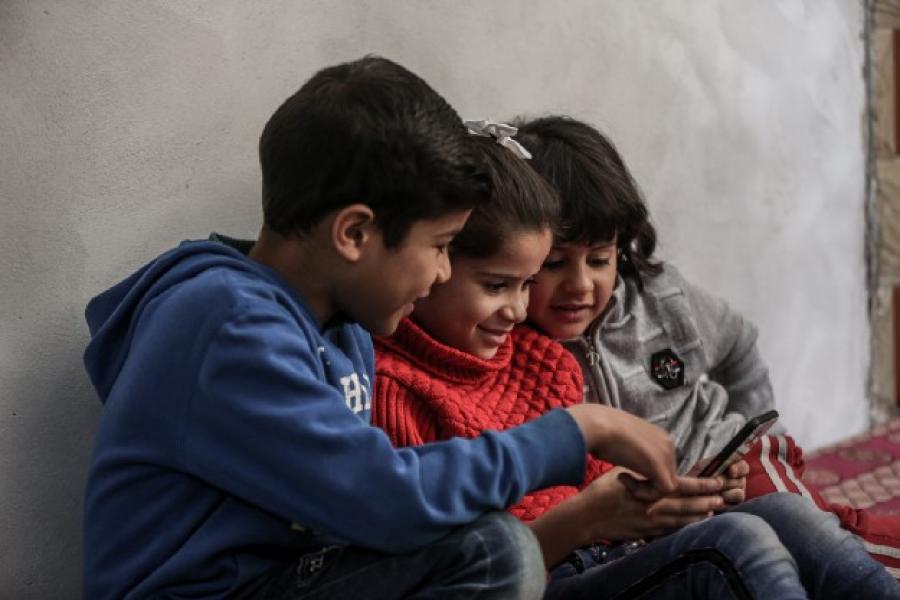
WFP has been implementing a pilot Multi-Purpose Cash Assistance (MPCA) in the Gaza Strip since October 2020. Every family receives a monthly cash amount of 305 euro on an ATM bank card. This represents around 60 percent of a Minimum Expenditure Basket (MEB) that was set by a multi-sectoral cash working group in the Gaza Strip, which WFP is a member of. An MEB is a monetary threshold of what a household requires to meet basic or essential needs, and the overall cost. It covers those essential items and services that households procure through markets and are accessible in adequate quality through local markets and services. With the support of the EU, other donors and stakeholders, WFP will carry out an evaluation of the MPCA and take stock to inform the design and implementation of further cash assistance in Palestine.



